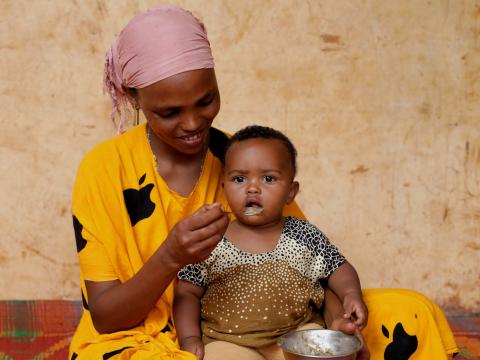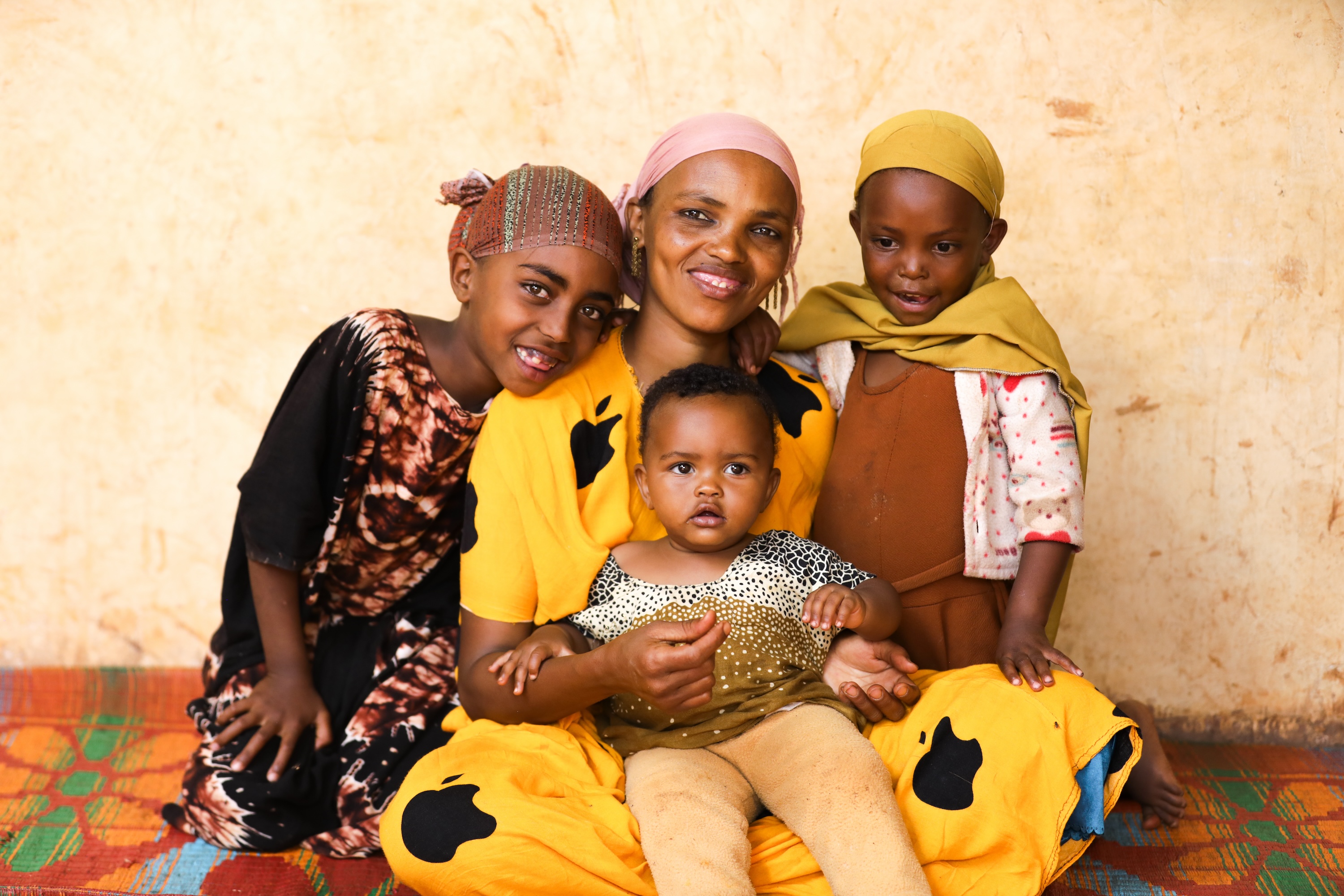The Vital Role of Mothers and Caregivers in Combating Child Malnutrition

In the heart of Busoyitu Kebele, within the Habro district of the Oromia region, Chaltu faced the daunting challenge of ensuring her daughter Milki grew up strong and healthy. Like many mothers, Chaltu, a mother of three, believed she was doing everything right. She exclusively breastfed Milki; however, she continued breastfeeding beyond six months without giving additional nutritious foods. During a routine check-up at the health post, Chaltu’s world was shaken when she received alarming news that Milki was not gaining enough weight.
Determined not to lose hope, Chaltu spoke with the Health Extension Worker and promised to start supplementary feeding for Milki. When Chaltu returned home, she began giving Milki cereal-based thin gruel without adding vegetables, beans, or egg. But when the time came for Milki’s screening, the reality was stark: she was still underweight. Fortunately, a Community Health Facilitator from the SPIR II project stepped in, referring Chaltu and Milki to a fourteen-day demonstration and feeding programme. This initiative, known as Community-Based Participatory Nutrition Promotion (CPNP), empowers mothers or caregivers to combat malnutrition by teaching them how to prepare nutritious meals using local ingredients. This initiative is a preventive approach to malnutrition. The approach supports underweight children under two years old by applying a learning-through-doing approach.
Reflecting on her past, Chaltu admitted, “I raised two children, but I did so without a good understanding of how to feed them nutritious food or the concept of a balanced diet.” The CPNP sessions transformed her understanding of nutrition. She learned to cook balanced meals using legumes, cereals, and fresh vegetables, milk, oil, and iodised salt to promote her baby’s growth. With commitment, Chaltu began implementing these changes at home, ensuring Milki received a nutritious diet.
 The results were astonishing. Within just fourteen days, Milki gained 400 grams, a small but significant victory that filled Chaltu with hope. Encouraged by this progress, she continued providing balanced meals for Milki and her entire family.
The results were astonishing. Within just fourteen days, Milki gained 400 grams, a small but significant victory that filled Chaltu with hope. Encouraged by this progress, she continued providing balanced meals for Milki and her entire family.
The knowledge Chaltu acquired not only improved her daughter’s health but also empowered her to make informed nutritional choices for her entire family. Chaltu maintained a clean and nurturing home environment and dedicated playtime with her children, enriching their development. These efforts paid off, and she saw a substantial improvement in Milki’s health and strength.
Yet, even as Chaltu celebrated her successes, she struggled to implement the practices she learned during the CPNP sessions. “Providing nutritious food for my children is tough with rising prices, especially since I am not fully engaged in income-generating activities,” she shared. Without land to grow vegetables or fruit, I must buy everything, and I can’t work full-time because I have no one to care for my children.”
Despite these obstacles, Chaltu remained resolute and committed to her children's future. She dreams of finding means to provide a balanced diet to support her baby’s growth, providing her children with educational opportunities she never had, hoping that they would achieve more than she could. “I will do everything I can to ensure my children receive nutritious food, a good education, and a better life so they can lead a brighter future,” she declared with unwavering determination.
 Chaltu's story is a testament to the impact of proper nutrition and the strength of community support in overcoming adversity. Through perseverance and the lessons learned from the Community-Based Participatory Nutrition Promotion (CPNP), she is determined to create a brighter future for her children.
Chaltu's story is a testament to the impact of proper nutrition and the strength of community support in overcoming adversity. Through perseverance and the lessons learned from the Community-Based Participatory Nutrition Promotion (CPNP), she is determined to create a brighter future for her children.
This year’s World Food Day resonates deeply with Chaltu’s story, commemorated under the theme "The Right to Food for a Better Life and a Better Future." This theme highlights the necessity of diverse, nutritious, affordable, and safe food, echoing the goals of World Vision International's ENOUGH campaign. Launched at the continental level in February this year, aims to combat child hunger and malnutrition across Africa, including Ethiopia.
The campaign focuses on reducing malnutrition, especially among children under five. The SPIR II project plays a vital role in this effort, equipping mothers and caregivers with the skills and support needed to prepare nutritious foods. Since its inception, over 14,000 children in the Oromia and Amhara regions of Ethiopia have achieved the targeted weight gain through CPNP intervention, proving that with the right knowledge and support, change is possible.
By Emnet Dereje, Communications Specialist (SPIR II), World Vision Ethiopia
About SPIR II
Strengthen Productive Safety Net Programme (PSNP) Institutions and Resilience (SPIR) II is a five-year Resilience Food Security Activity (RFSA) implemented by a consortium of partners led by World Vision, which includes CARE, ORDA Ethiopia, and learning partner IFPRI. It is funded by the USAID Bureau for Humanitarian Assistance (BHA) and focuses on enhancing livelihoods and resilience to shocks, as well as improving food security and nutrition for rural households in Ethiopia’s Amhara, Oromia, and Tigray regions through interventions aligned with the government’s Productive Safety Net Programme (PSNP).
Acknowledgement
This publication was produced in collaboration with World Vision under the SPIR II Programme, Cooperative Agreement Number 720BHA21CA00036, funded by the U.S. Agency for International Development.
Disclaimer
This media product is made possible by the generous support of the American people through the United States Agency for International Development (USAID). The contents are the responsibility.